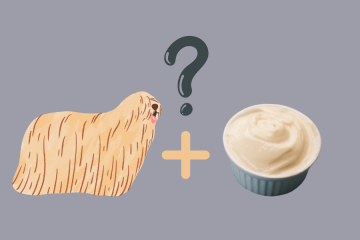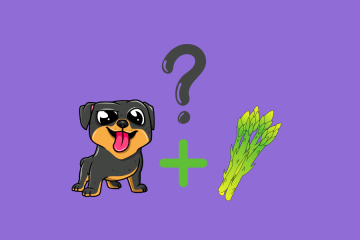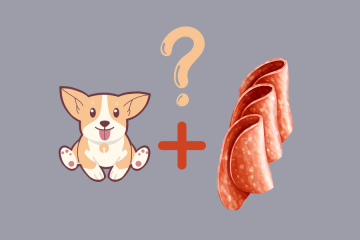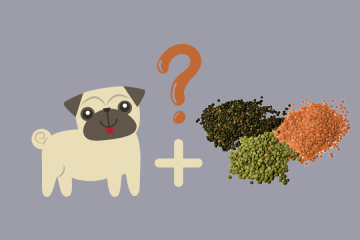Can dogs eat oranges? Offer your pup a delicious citrus treat by giving them an occasional orange, but be sure to do so in moderation. While oranges may provide health benefits and make for fun snacks, too many can be bad as they contain large amounts of sugar. So give Fido some vitamin C-rich fruits when desired – just don’t forget that with it comes the responsibility of offering such treats responsibly!
Key Takeaways
- Dogs can eat oranges as a treat, or you can even make homemade dog food with them!
- Oranges are a great source of vitamin C, which is beneficial for a dog’s immune system.
- They’re one of the best sources of vitamin C for them, so they help to fight cancer and kidney stones.
- Orange juice is risky for dogs because it usually contains extra sugar and other ingredients like citric acid, sweeteners, and concentrates which could upset your dog’s stomach. ⚠️
- Grapefruit should also be avoided because it contains a toxin that could be harmful to your pup. ⚠️
Oranges and Their Health Benefits for Dogs

When it comes to keeping your pup healthy, oranges are not just for humans! As one of the best sources of vitamin C for dogs, these juicy fruits can help boost their immune system and even fight cancer cells and kidney stones. Treat them with a slice or two as an occasional snack – you could also try making unique homemade canine dishes featuring this fruity powerhouse!
They contain potassium, which helps to keep dogs hydrated. If your dog has a lot of energy and likes to play outside, these citrus fruits will help keep Daisy hydrated.
Additionally, oranges are a good source of fiber, so go ahead and feed your dog oranges. They’re so delicious! With their sweet and tangy flavor, they pair perfectly with other fruits and make for a healthy snack. They have no sodium, so your dog’s blood pressure will surely be regulated. Moreover, your dog will thank you for his healthy heart! Potassium in oranges rules!
When Should a Dog Never Eat Oranges?
Some dogs are allergic to the essential oils found in oranges. If your dog is allergic, he might have an upset stomach or an itchy coat. Sweet oranges also contain a lot of natural sugars, which can spike up a dog’s blood sugar levels. Try to buy your dog a seedless variety of oranges, as too many seeds might be a hazard for dogs.
Some dogs don’t like the sour scent of oranges, so avoid giving them oranges if they exhibit this behavior. Never give your dog the orange plants’ stems or leaves, as these are a choking hazard to your dog. A dog should never consume unripe oranges, they are too sour and large amounts might provoke an upset stomach. Too sour? Well, just look:
Editor’s Note
Some people ask us: why are oranges poisonous to dogs? Are they really? While we all adore our furry friends, it is important to be aware of foods and treats that can potentially cause harm. So, the answer your pets have been waiting for: oranges are not toxic for dogs! However, too many in one sitting just might give them gastrointestinal upsets, diarrhea, or orange peel choke hazard – so please dispense those juicy fruits responsibly when creating a doggo snack break it’s best to serve the fleshy parts only). And remember diabetic dogs may require extra caution.
How Many Oranges Can Dogs Eat?

The answer to the question: Can dogs eat oranges is a yes, but many people are curious about how many oranges their dogs can eat. They should only have a small slice or two in one sitting. Most dogs typically do not like the smell of oranges, but some may be willing to eat small quantities. Whole fruits should be avoided, as large amounts could cause digestive problems for dogs. Always consult with a veterinarian if you are unsure about what is safe for your pet.
Orange Juice. Risky or Safe?
Most orange drinks are processed, meaning they have been treated in some way to make them shelf-stable. This usually includes adding extra sugar, which can be harmful to dogs. Additionally, most orange juices are not just pure orange; they also include other ingredients like citric acid, sweeteners, and concentrates.
These additives can also upset a dog’s stomach. Although your pooch might love that red ruby orange drink, which adds a bit of a zest to their everyday lives, sorry folks, the high sugar content is no good for Rocky! What about orange skin? Can dogs eat orange peels? Keep reading!
Orange Peels. Risky or Safe?
Feed your dog orange slices instead of the skin. Although the orange peel is not harmful to dogs and nothing would happen if they ate a few, they contain a lot of pesticides and fertilizers. It would be better to just avoid giving them to your dog altogether. Orange peels can also be a choking hazard. Moreover, try to buy organic oranges for yourself and your four-legged friend! You’re always on the safer side if Doggo grabs some bio peels! If you’re into science and want to know more about oranges and dogs, go to Dogs are an orange’s best friend or How dogs hunt the citrus industry biggest threat.
Other Citrus Fruits for Dogs
Dogs are like people in that they have different likes and dislikes when it comes to food. Some dogs love citrus fruits, while others turn up their noses at them. Most dogs, however, can eat a limited amount of citrus fruit without any problems. What citrus fruits can dogs eat?
Grapefruit
Almost all citrus fruits are safe for dogs to eat in moderate portions, except for grapefruit. Grapefruits contain a toxin that can be harmful to dogs, so grapefruit juices should also be excluded.
Lime
If you’re asking about limes, do not give them to dogs, as they might turn out poisonous to them. This includes the Mexican lime, the Persian lime and the key lime. Other fruits are safe for dogs to eat in moderation as long as they do not contain any preservatives or additives.
Tangerines
The mandarin orange (tangerines/clementines) is a good choice because the skin is more delicate than the orange peel. Lemons are fine too, but without the peel. Keep those citrus juices away from your dog.
Can Dogs Eat Oranges? Fruit for Thought
Go ahead and give your furry friend a few slices of a juicy orange to increase your pup’s vitamin C levels. Just make sure to avoid giving them the leathery rind, and don’t let them drink any orange syrups or grapefruit juice. With that said, oranges are just one example of a safe and healthy citrus fruit for dogs. If Fido isn’t fond of oranges because of the acidic taste, there are plenty of other delicious fruits out there that can provide your pup with essential nutrients.
Keep an eye out for our next post, where we’ll be highlighting some other fruits for dogs. In the meantime, fetch those navel oranges, since now you know the answer to: Can dogs eat oranges?! Feel free to share this article with your friends and family who also have canine companions!
Lucas Taylor is a veterinary assistant, freelance journalist and single dad who lives in the suburbs with his three pups: Ruby, Nala, and Woody. He has one cat named Pepper. When he’s not writing articles or working at the vet clinic, Lucas loves cooking French cuisine for himself and friends at home. One of Lucas’ favorite things to do is paddleboard with his son Noah and their canine companions. Pepper is the homebody of the bunch – she loves chilling on the couch.












